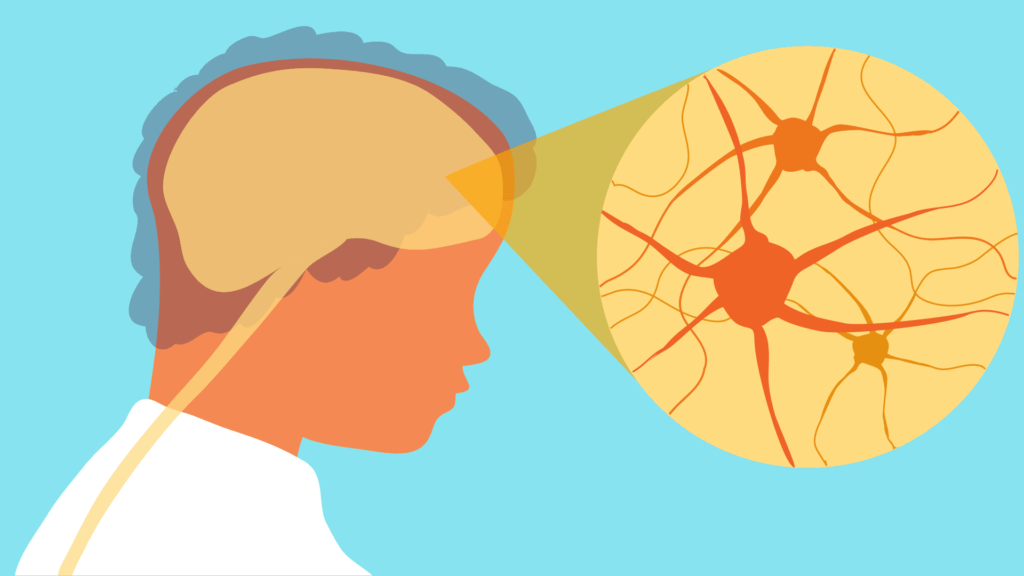Hey everyone and welcome to Online Indians. today we’re gonna learn about 7 things music does to your brain now let’s begin.
1. Musical Goosebumps
Do you ever feel a jolt of electricity when a singer nails a high node? This weird sensation goes by many names. Some call it Frisian, others say the chills, but most of the time people just call it goosebumps.
It feels a lot like a small shock, because, it actually is. When you hear something that takes your breath away your brain releases several powerful chemicals.
They increase your heart rate, raise your temperature, and make your skin more conductive to electricity. So when your nervous system sends out an electric signal. It stimulates tiny muscles at the base of each hair on your skin this is what gives it that bumpy look.
Most of the time goosebumps aren’t a good thing you get them when you’re scared, stressed or cold. But musical goosebumps, come directly from your emotions when something amazes or moves you.
Your nervous system starts sending out electrical signals your hair stands on end because you’re invested in the music. But not everyone can get musical goosebumps.
A study from 2016 found that people who get them tend to have more developed auditory and prefrontal cortexes. So if your favorite songs give you the chills you may have a deeper understanding of music than most people.
2. Activating Pleasure System
Why do we fall in love with music? we’ve all listened to the same song on repeat, we’ve all drummed or sung along as loud as we could. Music makes us feel energetic powerful and inspired.
But why? A study from 2017 found that your favorite songs activate the same part of the brain as many addictive substances most drugs stimulate the nucleus accumbens or neck the neck is your brain’s main pleasure center.
So it controls motivation, rewards and reinforcement learning. Think way back to elementary school when you got a good grade on a test. What’s the first thing you did you probably went and told your parents. You knew that they’d be proud of you which told your neck to pump your body full of feel-good hormones like dopamine.
Turns out your favorite songs do the same thing researchers tested this by shutting down opioid receptors in the brain. This technique normally helps people struggling with alcoholism. Here the researchers found after losing these receptors people no longer enjoyed their favorite songs.
Does that mean music is an addictive substance? not quite. But some people do start to crave the way music makes them feel. While music may be one of the healthiest addictions it’s important to keep any craving under control.
3. Altering Time
The right music can change the way you perceive time. Think way back to the last time you stood in line or sat on hold you might remember some forgettable blend of piano and strings or a ukulele laid over tropical bongos.
These songs are bland and boring but that’s the point this strange genre dates way back to the early 1900s. A composer named Erik Satie wrote the first collection of intentionally forgettable songs he called it furniture music.
But you probably know it as background or elevator music Sati created songs that no one would notice. That person would hear without really listening to this music will never inspire you or get you on your feet. It won’t strike a chord or make you cry background music is designed to simply fill space it’s there to prevent the discomfort of complete silence people claim they like peace and quiet.
But silence is not something many people actually enjoy. It puts us on edge it creates an eerie vibe that inspires anxiety and fear. Even if you’re not scared of it. Silence still feels awkward is that how you want your customers to feel as they browse through your store.
Sure you groan when the same acoustic riff plays for the 20th time. But that music has a subtle yet powerful effect on your brain. It balances your mood with cheerful ensembles. Some songs make you feel like you’re on vacation your attitude shifts becoming more carefree and optimistic.
The happier you are the more money you’re willing to spend. The science behind this is a little more complicated. As we go about our daily lives our brains are taking in countless new stimuli.
Few places are more perceptually overwhelming than stores and malls we’re constantly absorbing every sight, sound, and smells we come in contact with.
Each new sensation makes it much harder to stay focused background music takes advantage of our brain’s inability to concentrate. It provides a constant stimulus that clouds our judgment. In other words, you’re more likely to drop a hundred bucks on new shoes.
Because you were thinking about too many different things. But your rationale isn’t the only brain function that suffers background music alters your perception of time while you’re standing in line music subtly distracts and entertains you.
You unconsciously start to split your attention between the music. And how long you’ve been waiting since only you’re thinking about the wait half as much it seems to go by faster.
So the next time someone puts you on hold don’t let some mindless melody mess with your head.
4. Enhancing Taste
In 2012, researchers found that listening to music while eating or drinking can enhance the taste. In this study, participants drank four types of wine while listening to different genres of music.
Across the board, participants enjoyed each wine more when it was paired with a specific song this study is just one of many examples of something called cognitive priming.
Cognitive priming is when one stimulus affects the way you respond to a subsequent stimulus. For example, if you’re shown a picture of a cat you’ll identify related words like pet faster than unrelated words like moon or car.
The initial picture gets you thinking about a specific subject so that it’s easier to recall information. In other words, it is easier to think about cats if you are already thinking about cats.
Cognitive priming works the same way for your taste buds. If you hear a mellow song then drink chamomile tea. Your drink will seem more relaxing the music prime’s your brain to feel a specific thing.
So your food will taste better when the flavor matches the atmosphere. Now, of course, that means the opposite is true too. If you drink your tea with heavy metal blasting in the background well you won’t feel nearly as relaxed.
5. Defusing Pain
Your workout playlist doesn’t just entertain your brain. Hmm, it actually increases your pain tolerance. Music is the world’s most common form of pain relief. But it works a little differently than the rest, unlike Tylenol or aspirin.
Music isn’t something you actively take to heal your body. IIt can’t reduce inflammation or cure headache instead it relieves pain by shifting your concentration. When you’re feeling stress music triggers a powerful emotional response not only is this a perfect distraction for your brain.
But feel-good hormones also counteract mental stress it replaces negativity with motivation leaving you feeling empowered. The stronger you feel the more pain you can tolerate.
Workout playlist, for example, changes the way you handle and react to stress. Your stomach might be cramping and your legs might be aching, but a good song will help you power through. So what about on a grander scale?
A 2011 study found that listening to music after surgery lessens the amount of pain medication patients take music was especially effective for patients with high anxiety. They were worried about potential injuries and negative side effects.
But listening to music unraveled their stress it helped them relax while taking their minds off their pain.
6. Recovering Memories
Music also has the power to unearth blocked or forgotten memories. The unique emotions we attach to certain songs can remind you of everything from friendship to pain.
One song might make you nostalgic for your childhood another could remind you of someone who passed away. For people who struggle to make sense of their memories music is a powerful tool.
People with Alzheimer’s disease one of the most common neurological disorders use music to rediscover memories that have been lost for years. Normally this disease strips you of the many cognitive functions you use every day.
Your thinking and reasoning skills go out the window you can’t store or recall memories. Many people completely forget their friends and families because it’s so common and damaging.
Hundreds of studies have tried to help Alzheimer’s patients regain their memories. Few methods have had a more significant impact than music. It brings those forgotten emotions to the surface stimulating their memories.
Music isn’t a permanent solution but it can offer a bit of relief to people who’ve spent years fighting against their own brains.
7. Rerouting Language.
Aphasia is another common neurological issue that limits your ability to speak. Some people can formulate sentences in their heads but they just can’t say them out loud. Others speak fluently but fail to understand what people are telling them.
They might respond with something completely off-topic thinking it made perfect sense. This kind of neurological damage can obviously impair your daily life.
Luckily psychologists discovered an interesting workaround by singing instead of talking. People with language deficiencies have an easier time expressing themselves. This technique is called melodic intonation therapy.
It changes language from something methodical to something creative. This means you’re using a different hemisphere of your brain. Even if it doesn’t sound that different singing your words reroute signals and avoids the damaged areas.






